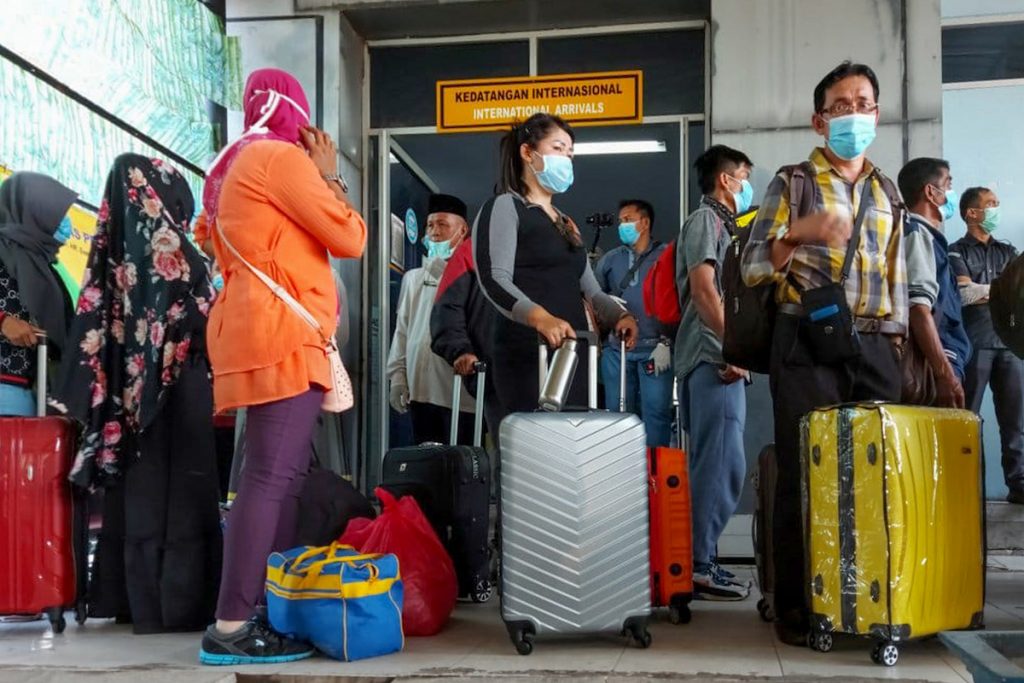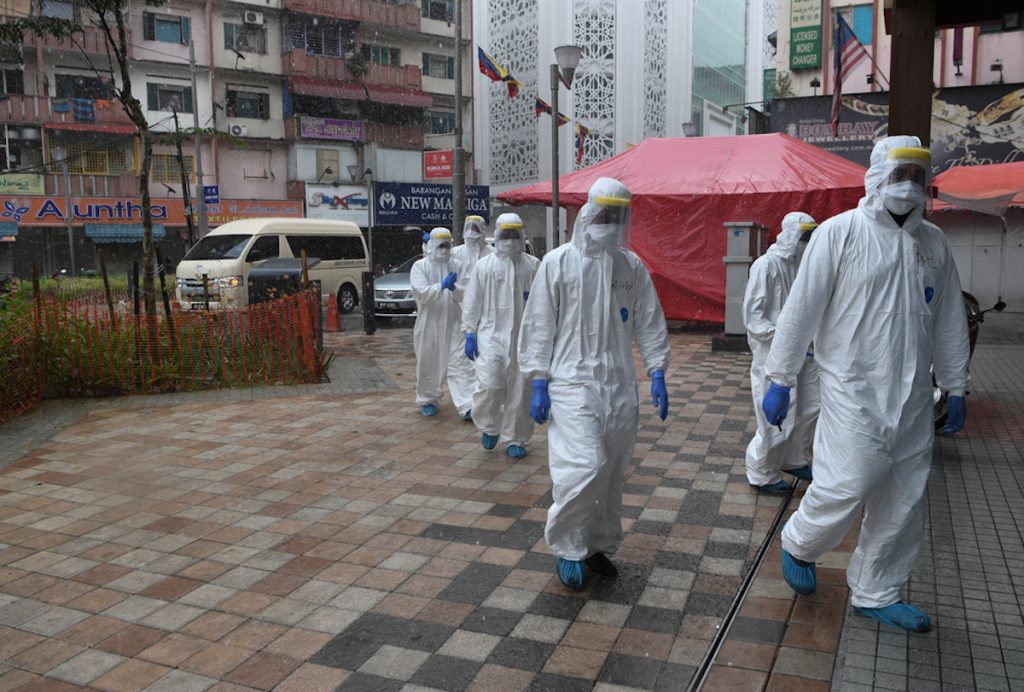As Malaysia brings its fourth week in lockdown to a close — with two more still to come — a stark reality is gradually unfolding: The country’s dependence on foreign labour to keep the wheels of nationwide infrastructure could prove to be its undoing.
From a medical standpoint, the lockdown introduced on March 18 has so far been a resounding success. Despite Malaysia’s close ties with China — and indeed Wuhan — and being one of the first countries to report cases, the government reacted swiftly to tackle the crisis.
As such, when you compare the global number of coronavirus cases Malaysia comes way down the list of affected countries, ranked 34 as of April 12.
Yet, a medical victory comes at an enormous economic cost.
All but essential services and factories were forced to close a month ago as the government tried to limit the general public’s movement and the spread of the virus.
Regardless of industry, employers were faced with the financially crippling prospect of paying employees for sitting at home, not doing very much.
Conversely, employees suddenly found their pay cheques cut or even stopped altogether, while having to work out how to pay for hungry mouths to feed.
One thing is for certain: The government woefully underestimated how much a lockdown would cost. Periodically, it introduced new economic stimulus packages — which started at about $2.3 billion and spiralling to $58 billion — rolled out as ministers worked to deal with one financial body blow after another.
However, it seems clear that there is no plan on what to do with the country’s estimated 3 million migrant workers.
Malaysia utilises foreign labour extensively in factories, construction, domestic help and agriculture. They do the dirty jobs Malaysians do not want to do themselves.
Foreign workers come from across the region, from Bangladesh to Indonesia. Two-thirds are here legally, but up to 1 million are not.
The illegal contingent are not always people who have slipped across Malaysia’s porous borders looking for a better life. More often than not, they have been brought into the country legally, but find themselves doing a job other than specified on their visa.
Most employers provide some kind of accommodation and some will provide meals on top of a meagre salary.
Yet, even in the best of circumstances, migrant workers can expect to be cooped up in overcrowded dorms or apartments. At worst, they may be living in converted freight containers or having to build shelter from whatever they can find on site.

The Immigration Department regularly carries out crackdowns to control the nation’s illegal workforce, but this almost always involves raids designed to round up large swathes of workers, while employers receive little more than a slap on the wrist.
So, before the lockdown, migrant workers had few rights. Now it seems they have none at all.
As the government keeps adding to its economic stimulus package, trying to protect Malaysian business and employees, the national media has been peppered with stories of employers locking out migrant workers and, with pay cheques stopped, the question of how they are supposed to find food and shelter is left unanswered.
Workers say they are afraid to go out because they will be arrested, punishable by a stiff fine of more than $200 for each time they are caught.
The government said it wouldn’t abandon workers. Yet, it has so far not provided any details of how it intends to help, more tried to palm off responsibility to the respective embassies and high commissions.
Meanwhile, the Malaysian Trades Union Congress wants foreign workers sent home. Just how it intends to overcome the monumental logistics nightmare of shipping home anywhere between 2 and 3 million people during the lockdown is, again, a question left unanswered.
The problem is no more acute than at two low-cost housing complexes in central Kuala Lumpur, where an estimated 6,000 people — 97 percent of which are foreign, the majority from India, Pakistan and Bangladesh — are cut off from the outside world, subject to strict building quarantines in both cases after multiple coronavirus cases were reported among residents.
Defence Minister Ismail Sabri Yaakob, the man with overall responsibility for the national lockdown, initially washed his hands of the residents, sticking to the line that high commissions were responsible for the welfare of their citizens.
Residents say the authorities initiated the quarantines without warning, thus preventing them the opportunity to stock up on supplies.
Hours after Ismail Sabri’s dismissive statement, the Federal Territories Ministry said it would set up temporary stalls for residents to buy food and essentials.
However, it still doesn’t solve the problem of how people denied a source of income are supposed to pay for them.

The whole debacle points to the government’s general disdain for the people who prop up the nation, an attitude that could come back to haunt it in the not too distant future.
Migrant labour is not an inexhaustible resource and neighbouring governments have, from a Malaysian perspective, this annoying tendency to remember how you treat their citizens.
A prime example of which is Indonesia periodically refusing to send maids to Malaysia after reports of sometimes sadistic abuse by employers can no longer be passed off as isolated incidents.
Since late 2019, Japan has been looking to the likes of India, Pakistan and Bangladesh to help provide workers for factories, as the world’s third largest economy deals with a shrinking population.
Gulf nations like the United Arab Emirates are also thirsty for labour as they continue with seemingly endless construction projects.
These recent additions to the migrant labour market are an attractive alternative.
This is, of course, on top of regional rivals competing for foreign direct investment. Thailand, for instance, has an economy geared towards this end, while Malaysia continues to protect domestic corporations.
Now, Finance Minister Tengku Zafrul Tengku Aziz would have us believe the economic impact of the coronavirus is temporary and the country will rebound better than ever.
Yet, the World Bank says Malaysia’s revival will depend on its factories churning out goods for export.
Malaysia needs its factories; factories need workers; workers need something to eat.
If the government doesn’t want to feed its labour force, how does it plan to get the country back on its feet?
Gareth Corsi is a freelance journalist based in Malaysia. The views and opinions expressed in this article are those of the author and do not necessarily reflect the official editorial position of LiCAS.news.








